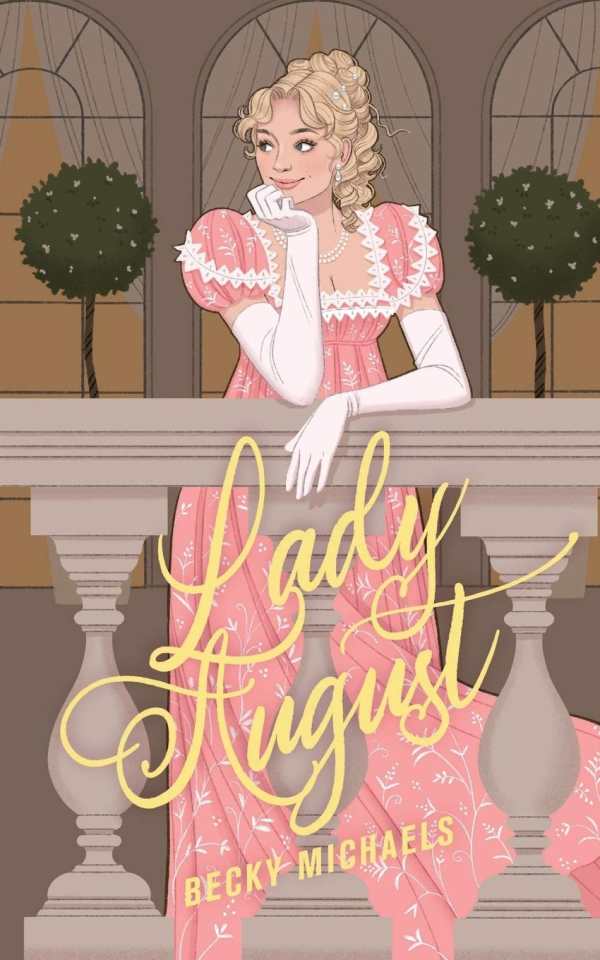Lady August
Lady August is a simmering historical romance in which a social outcast becomes an heiress and learns to take chances.
In Becky Michaels’s entertaining Regency romance Lady August, a charming sudden heiress must win acceptance and find a husband.
At twenty, August is a governess. Then Brooks, the solicitor who manages her financing from afar, reveals that she was never an orphan, but is the illegitimate daughter of a dying earl who wants to atone.
Now twelve thousand pounds richer, August is sent to live with her aunt, Lady Ramsbury, and thus make her London society debut. Brooks, curious about how August will fare, lingers, all while denying his growing interest in August.
August learns the truth about herself despite her disbelief; she is stalwart in her duties as a governess. In an extended sequence focused on her self-growth, her strong, idiosyncratic character stands out. Meanwhile, Brooks’s curiosity about her sets the stage for his later wavering between desire and restraint. Subsequent events trace her introduction to the earl’s family, and her inevitable path toward conventional happiness.
This classic plot is both a fairy tale that elevates its heroine out of plain circumstances, and a sharp portrait of the earl’s family, some of whose members feel betrayed because of August’s existence, and who try to manipulate circumstances. Against this cold backdrop, August’s level-headed demeanor is refreshing in its realistic acknowledgment that the only fate she needs to worry about is her own.
The book’s main characters are outsiders among the upper class. August eases into her new life with skill, and she’s no ingénue: a racy indiscretion makes her worldly enough to face a variety of people, while also bringing risk when a character threatens to expose her secrets. Brooks, who is “willfully celibate” because of his parents’ troubled marriage, and because of grief surrounding his sister’s death, is prickly, conflicted, and tender at the right moments, resulting in tension about whether he can overcome his self-imposed rigidity.
Momentum intensifies because of the book’s peripheral conflicts, which involve August’s half-brother, who replaced the earl, and another character’s attempt at raising scandal through the press. Some of the book’s adversarial characters are constructed in broad terms, though, while an event that forces Brooks to act chivalrous is too swift in its execution. The story’s pace after this plot twist is lagging, as characters sidestep one another and learn to trust others.
But Lady Ramsbury is noteworthy throughout; she’s a self-aware widow whose good intentions toward August are clear. Other warm supporters, including Brooks’s mother, help to illustrate how often bystanders can see the truth of a situation long before those involved can. With memorable leads and a joyful outcome, August’s rise in social status is matched by the complex, worthy love that she finds.
Lady August is a simmering historical romance in which a social outcast becomes an heiress and learns to take chances.
Reviewed by
Karen Rigby
Disclosure: This article is not an endorsement, but a review. The publisher of this book provided free copies of the book and paid a small fee to have their book reviewed by a professional reviewer. Foreword Reviews and Clarion Reviews make no guarantee that the publisher will receive a positive review. Foreword Magazine, Inc. is disclosing this in accordance with the Federal Trade Commission’s 16 CFR, Part 255.

